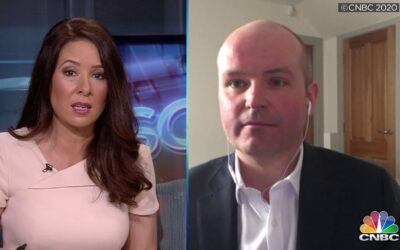16/06/20203 mins
Why dividends matter
If you’re a regular reader, you’ll know that we often talk about dividends. That’s because they can make a big difference to your long-term investments. Indeed, with more uncertainty in the area now, we invite you to revisit the role of dividends.
Making dividends work for you
If you’re a shareholder in a company, you may receive a dividend from that company’s profits – as a reward for entrusting it with your capital. As with all investment trusts, The Scottish’s main source of income used to pay dividends to its investors are the dividends received from its portfolio of holdings. You may not be aware that we deliver one of the highest dividend yields in the AIC Global peer group. This is important because, in conjunction with share price movements, dividend income forms a substantial part of an investor’s total return.
Compounding occurs as dividends are used to buy more shares which, in turn, earn dividends on their own. These reinvested dividends would then gain or lose in line with the movement of the share price. For example, over 25 years to 31 May 2020, the share price of The Scottish increased by 225%. The share price plus dividends taken as cash would raise this to 357% over the same period and, if those dividends had been reinvested, the total return would have been 497% (all before any dealing expenses). It’s important to remember, of course, that markets can be volatile and shares (and the income from them) can go down as well as up.
Why a contrarian approach can pay dividends
As we’ve demonstrated, dividends can play an integral part in the return on your investments over the long-term. We’re pleased to say that we’ve increased our regular dividend for the last 36 consecutive years which makes us a ‘dividend hero’ according to the AIC. Even in these unprecedented times, we stand firm in our intention to maintain our long track record of regular dividend growth, having recently announced that we will increase this year’s dividend. However, as we have seen from many companies in the past few months, dividends are not guaranteed and they can fall as well as rise.
In this context, how does our contrarian style come into play? It guides us to look for what we call ‘ugly ducklings’ – unfashionable and unpopular investments. The share price of such investments typically reflects their ‘unloved’ status, often written off by other investors. By contrast, we research these companies to ascertain if they are ripe for improvement. Has there been a change in their business model, or to senior management? Are there nascent opportunities in the markets in which they operate? If we believe we can see a change, and the company presents a credible plan for recovery, we’ll consider investing. However, we also take a ‘belt and braces’ approach to our investment – which brings us back to dividends.
One of the things we may consider before investing in an ‘unloved’ company is if it has sufficient cash to pay dividends throughout its turnaround. As our approach is based on long-termism and patience, a sustainable dividend may make it easier for us to hold the stock while the business is recovering. A good example of this is our investment in US telecoms group AT&T. Deemed unexciting by many, we view the steadiness of this business as a virtue. It fits our ‘unloved’ criteria, because investors’ expectations are low. The company has a credible plan to improve its fortunes. As we wait for positive development, we can enjoy the dividend – the belt to the braces.
What if the company doesn’t pay a dividend?
If dividends are so useful, does that mean we’ll shun companies that don’t pay one? Not necessarily. When a company is putting its house in order, it might choose to stop paying a dividend, conserving its cash to allow it to improve the business (investing in new technology or changing its business model, for example). Indeed, this was the case with Tesco, which suspended its dividend before we invested. Tesco addressed areas of concern, made improvements to its business – then restarted its dividend. We see the reinstatement of a dividend as an important signal that a company’s rehabilitation is underway.
As you can see, dividends can tell us a lot about a company’s health – and its future prospects. We always pay close attention to a company’s dividends when we’re considering investing – both its ability to pay them and its track record of doing so, because dividends can make a tangible difference to long-term investors.
*16 June 2020
Please remember that past performance may not be repeated and is not a guide for future performance. The value of shares and the income from them can go down as well as up as a result of market and currency fluctuations. You may not get back the amount you invest.
The Scottish Investment Trust PLC has a long-term policy of borrowing money to invest in equities in the expectation that this will improve returns for shareholders. However, should markets fall these borrowings would magnify any losses on these investments. This may mean you get back nothing at all.



